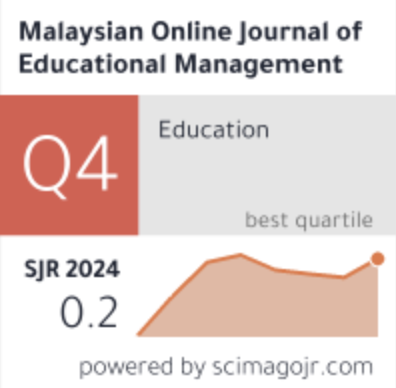IMPLEMENTATION OF ENVIRONMENTAL EDUCATION PROGRAM (EEP) IN A NATURE EDUCATION SCHOOL (NES): STRATEGIES, BENEFITS & CHALLENGES
Abstract
In Malaysia, there is a Nature Education School (NES) conducting Environmental Educational Programs (EEP) in Janda Baik, Pahang since year 2011. Basically, EEP integrates the teaching of environmental content knowledge within the natural resources in the village. In terms of growth, the NES have witnessed increasing demand of EEP from both public and private schools due to the need to support students’ learning experience that are not achievable in the classrooms. This phenomenon has led to the purpose of research to explore the unique strategies, benefits, and challenges of the NES while dealing with EEP in their context. In terms of research design, it is an explorative case study using the method of participantobservation, prolonged engagement, purposive sampling and data collection from 16 key respondents that includes interviews with the Principal of NES and the middle management, online surveys with selected members from the village’s Private Resort Operators’ Association (PROA) and 10 facilitators who had been actively involved in the planning, organizing, leading and the monitoring of EEP in the last 5 years. For data analyses, the respondents’ transcripts were coded through open, axial and selective coding. In addition, triangulation method was used to compare between with field-notes, on-site interviews and online surveys to improve the credibility, dependability, and confirmability of data. As findings, the NES in the case study experienced both contextual benefits and challenges that require unique educational management and leadership strategies in their EEP. Discussion from this case study suggests four unique strategies used by the NES to implement EEP successfully: (a) Planning the EEP module must be visionary and capitalize on environmental content knowledge through links with field experts and universities, organisational learning and training; (b) Organizing of EEP must consider the people, task, content, processes and the availability of natural resource; (c) Leading visitors to focus on sustainable use of natural resource and contributing to future programs of EEP; and (d) Monitoring the organisation’s systems, visibility and specialisation in EEP. As for future suggestions of research, the tasks of evaluating the quality of EEPs ought to consider other factors such as; (a) exploring andragogy for adult participants in EEP, (b) creating advance EEP modules for the facilitators, and (c) Creative and innovative use of natural resources for EEP.









